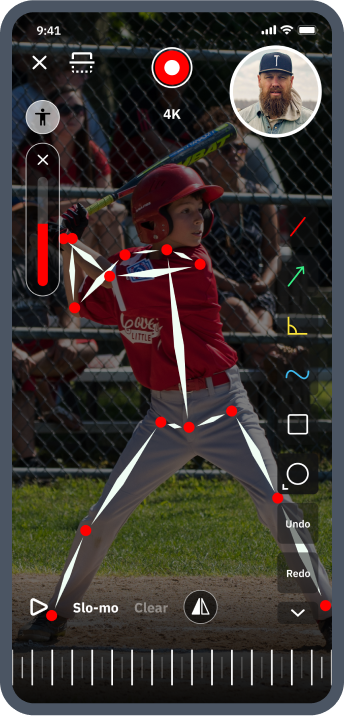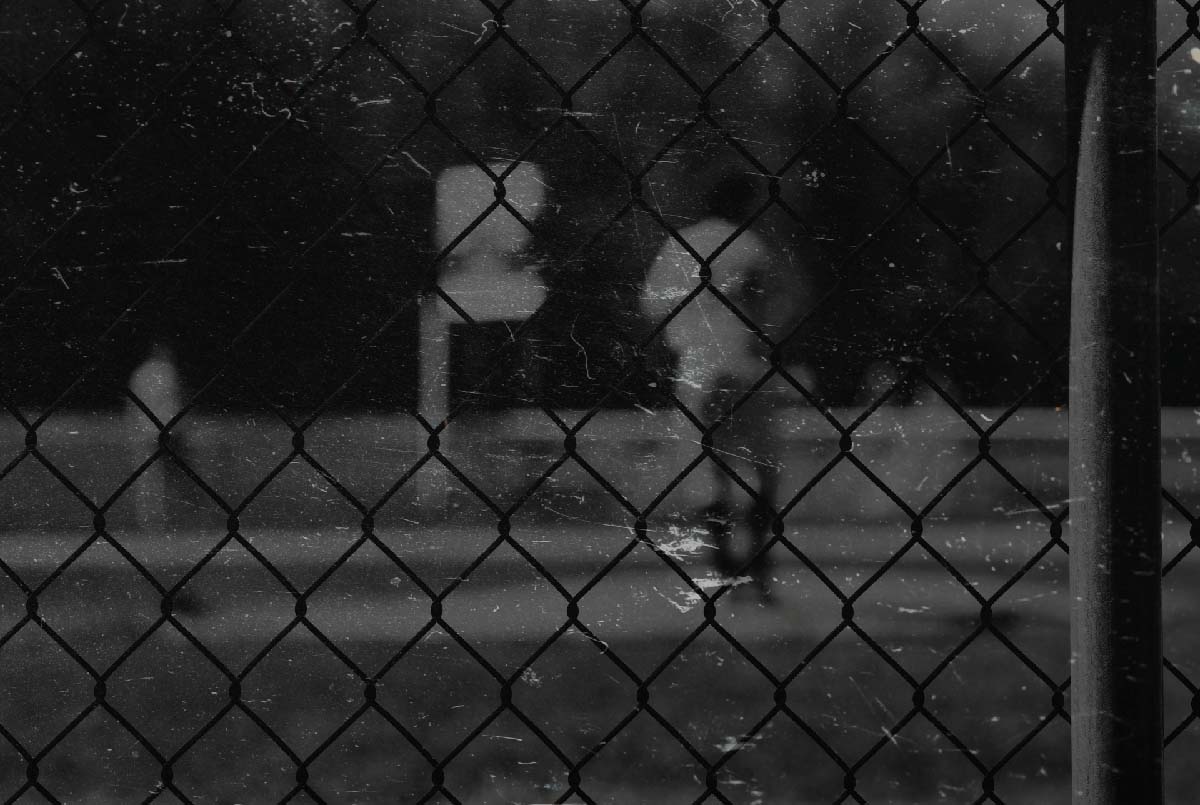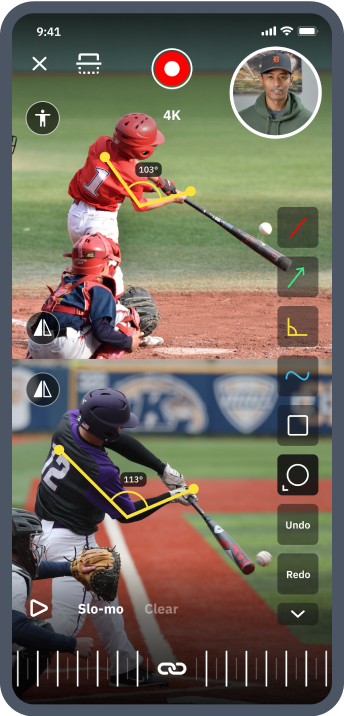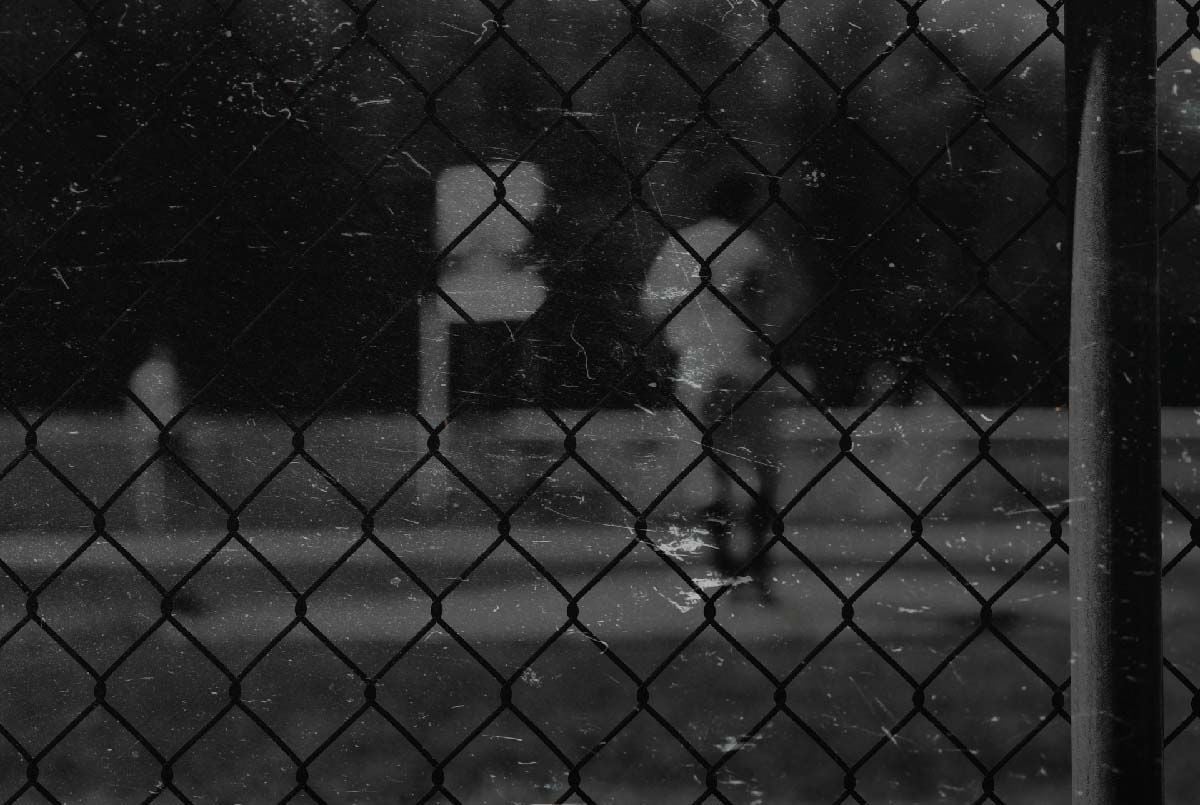The Ultimate Parent's Guide to Baseball Showcases and Camps | Everything You Need to Know

Baseball showcases and college camps can be a confusing topic for parents and players.
Especially because so much information that you’ll find about them online is written by someone with an agenda – usually to sell you on paying for either a showcase or a camp.
Despite having only two names on the byline, the facts and recommendations gathered below were sourced from numerous candid conversations with college coaches of all divisions and showcase directors from across the country.
To help you cut through the haze of uncertainty, our unfiltered guide will cover the following topics:
- Explaining what showcases and camps are
- Things to consider before going to a camp or showcase
- How to pick the right showcase or camp for you
- Getting noticed at showcases and camps
- Common misconceptions about showcases
The Difference between Baseball Showcases and Camps
There are a few types of events that operate in or adjacent to the world of college baseball recruitment.
These events include showcases, college camps, and travel ball tournaments. The two that confound many parents are showcases and camps.
Let’s break them down one at a time.
What Are Baseball Showcases?
A showcase is an event hosted by a private company where players can show off their skills to college coaches and scouts. Showcases come in many forms but usually involve a pro-style workout and possibly a live game.
They’ve increased in popularity in recent years, so you can now find either national-level showcases or local ones.
The point of attending showcases is to give your ballplayer exposure to college coaches.
These events tend to be less focused on instruction or development.
However, many modern showcases offer both exposure and verified evaluations – as they purport to evaluate your ballplayer’s skills objectively.
Firstly, it can be worth finding out whether the showcase leans further in the exposure or evaluation direction and then making sure this aligns with your goals for the event.
Secondly, many will offer you take-away feedback, but you should be at least a bit wary of this feedback, as we’ll explore below.

Qualitative Feedback at Showcases
The most common evaluation framework used across levels in baseball states that the five tools central to success in the game are:
- Hitting
- Hitting for Power
- Running
- Fielding
- Throwing.
Feedback reports provided by showcase events are often based on this five tools evaluation criteria.
And such reports profess to help you overcome the inherent parental bias that even professional coaches face when evaluating their own children’s place in the game.
If you're like most parents, you aren’t already a high-level baseball coach, so such reports also help you learn to see and think about your ballplayer’s skills in the way a college recruiter might.
But alongside these benefits, there are a few cons – unfortunately, this word choice also works as a pun here.
The feedback these showcases provide can never be completely free from financial incentives.
If they were to tell you something that you may not be ready to hear, like "Your son just doesn’t have the physical makeup or skills to play college baseball," they risk losing future business from both you and potentially those in your personal parent network.
And, of course, showcase runners have no way of knowing if you or your athlete are ready to receive truly negative feedback, so they are incentivized to hedge their bets.
Otherwise, not only might hearing something like the statement above get cause you to get upset and not return to participate in the event next year, but there’s also the possibility that you’ll share your disdain for the showcase with all who are willing to listen, whether online or in-person.
Showcases, for all the good they can certainly do, are nearly all for-profit businesses at the end of the day and such customer experience and reputational concerns can’t help but exist.
Given these possibilities, it should be pretty clear why any qualitative assessment, AKA feedback, that a showcase provides should be received with at least some healthy skepticism.
To be clear, this isn't an indictment of showcases, which can and do help make so many young ballplayers’ dreams of playing at the next level come true.
We just mean to give parents all the angles and incentives in an unfiltered way, so as to inform them as much as possible.
Unlock your ballplayer’s full potential
Find the perfect vetted coach to build a solid foundation or take your player's skills to new heights.
Download the free app

Quantitative Feedback at Showcases
Most showcases these days also include quantitative performance measurements to help you see where your ballplayer ranks among their peers.
These measurements can include things like the 60-yard dash, agility shuttle, throwing velocity, and batting exit speed.
If you or your athlete are just curious where he stands on such tests, they can be done at home or in your local batting cages with a stopwatch, radar gun, and any of the bat sensors on the market.
Many batting cages will even have an in-house Rapsodo or TrackMan, which will help you get more accurate with your self-assessment.
Video footage of your son hitting or pitching on one of these trusted devices is usually all the verification needed to get on a college coach’s radar.
If the metric readings these devices spit out, coupled with a video of your ballplayer in motion, are aligned with what a given coach is looking for, this alone can be enough to spark an invitation to visit the campus or a request for your son’s upcoming game schedule.
Moreover, for your son’s goal-setting or your own curiosity, averages for each of these commonly administered performance tests, segmented by different ages or levels of play, can be found freely online with a bit of googling.
That said, in all fairness to showcases, some college coaches and pro scouts will always trust their professed metrics over the DIY version explained above.
So if you or your ballplayer are not merely curious where he stands compared to age and level of play and are explicitly looking for recruitment, this should also be taken into account.
This scout mistrust is especially true for metrics like the 60-yard dash, 5-10-5 agility shuttle, grip strength, broad jump, and catcher pop times.
These metrics are easier and – because we promised an unfiltered guide – more tempting for some parents or your ballplayer’s paid trainers to not get 100% accurate.
For example, most showcases are using lasers that digitally measure and upload the times for the running stations and pop times – as opposed to a stopwatch, which is more subject to human error.
Moreover, gear differences aside, college coaches are not naive.
They know that a certain percentage of parents who love their children and have invested so much time, energy, and money into their baseball development are going to embellish things.
And they also know that the performance trainer you, as parents, pay good money to each month has an obvious financial incentive to show progressively better times and results.
Though you or your trainer might be the exception, these college coach doubts are based on widespread realities.
Numerous college coaches reported getting burned by simply untrue parent or local trainer reported metrics for the 60-yard dash, 5-10-5 agility shuttle, grip strength, broad jump, and catcher pop times.
So much so that some coaches take these reported metrics – when not provided by a known third-party service like a showcase event – with a grain of salt, at best.

What Are Baseball College Camps?
College coaches and staff host camps for high school baseball players, to show them college-level instruction and help them improve their game.
These camps tend to be more dual-purpose than showcases.
They can be a great chance for instruction as well as an opportunity for exposure from a specific staff.
College coaches use camps to raise revenue for their programs, but they are often less expensive than showcases for parents.
In the interest of staying unfiltered with this guide, we’d add that much of the profits made from hosting these camps are used to pay the otherwise unpaid assistant coaches on a college’s staff.
Though such coaches might work hard all year, just like the rest of the staff, most programs unfortunately, cannot afford to compensate them any other way.

Things to Consider Before Going to a Baseball Showcase or Camp
As parents undertaking the recruitment process, deciding to attend showcases or camps is far from straightforward.
Parents and players should thoroughly research showcases and camps before paying to attend.
By scrutinizing the realities of these events, you’ll make a more informed decision on whether – and which ones – to attend.
1. Timing
If the showcase or camp takes place in the middle of the off-season, your ballplayer might not be in good enough shape to show off his best skills.
He could also risk injury if he hasn't been training full-bore.
Many should consider attending an event mid-summer or near the end of a high school season instead.
2. Who’s Attending
If his goal is gaining the attention of college coaches or scouts, then make sure they will be in attendance at the showcase or camp. For camps hosted by colleges, this is obvious.
But for showcases, it’s rare that coaches discover brand new talent. They usually already have an idea of who they want to see there.
Therefore, showcases can be more beneficial if a coach is already familiar with your ballplayer.
3. Pay-to-Play vs. Invite Only
Many showcases require a fee to participate. These can cost $500 or more, not including any necessary travel or lodging.
Many pay-to-play showcases are explicitly in business to earn money, so they’ll ease up on the negative feedback to entice your athlete to attend the following year.
Invite only showcases on-the-other-hand, which only allow top players nationally or from a given area, tend to have better attendance from college coaches and recruiters.
If you’re aiming for authentic exposure, invite only showcases will be your best option.

4. Age Level and Ability
The purpose of baseball showcases and college camps will differ for underclassmen and upperclassmen.
Freshmen and sophomores should consider attending these events for the instruction, to see what college coaches expect, and to get a sense of their competition.
For most, exposure shouldn’t be your main focus until your junior and senior years.
Also, be realistic about your ballplayer’s baseball skills. If you know he’s probably not cut out for a Division I program yet, then don’t waste money or valuable training time attending a D1 university’s camp.
When evaluating showcases and camps, make sure they offer what a player at his current age and skill level is looking for.

How to Pick the Right College Baseball Camp
Players can only attend so many camps or showcases in a year. And the costs and travel time alone will set the limit for most families.
Consequently, it’s important to choose the right college baseball camps for your ballplayer.
Have your athlete consider all of the following questions when deciding:
- Are you interested enough in playing at a given college to make attending their camp worth it?
- Does this college offer the major you're interested in pursuing?
- Has the coach contacted you about playing in their program?
- Will you and your family have time to tour the college campus while you’re attending the camp?
- Is the college’s baseball program recruiting for your position the year that you graduate high school?
- How many players will be on their roster, and how many will there be playing your position?
- Has the coach already evaluated you, either at a showcase, or through your recruitment video?
- How many colleges will be represented at the camp? Sometimes there is more than just one.
It’s important to do your research before deciding if a given camp is the right fit for your son.

Getting Noticed at Baseball Camps and Showcases
If your main goal is exposure, then you’ll want to guarantee that your ballplayer is noticed at one of these showcases or camps.
Camps tend to be more instructional, rotating players through hitting, fielding, and pitching stations where they learn and practice their skills.
Again, showcases tend to be limited on instruction – and also more limited on opportunities to show off one’s abilities.
Since there are so few meaningful chances to get noticed, he’ll want to make the best impression he possibly can.
Our tips below will speak directly to your ballplayer.
Ultimately, they must be the one to internalize these ideas and execute on the day of the event.

Focus on Your Strengths
When you sign up for a showcase, make sure you’ve developed an above-average skill set beforehand that will get you noticed in a large pool of players.
At the showcase, focus on this strength.
For example, if you’re a speedy baserunner but not much of a power hitter, be sure to steal a bag or two if you get on base.
Also, keeping with this same example, show off your overall athleticism and speed every chance you get.
The coaches will likely have your 60-yard dash and agility shuttle times from the day’s testing, but remind them of this attribute while on defense or when hustling in between innings.
Ultimately, don’t try to be something you’re not, because your nerves will get the better of you and you risk falling flat. Instead, use this opportunity to shine a bright light on what makes you unique.
This is partly why honestly evaluating yourself as a player before attending is essential.
Show Maturity and Hustle
Your performance off the field is just as important as on the field. Don’t be rude to your teammates, maintain a positive attitude, and be respectful to everyone involved.
You have just as much a right to be there as anyone else, so believe in yourself.
This doesn’t mean being cocky to the point where coaches consider you a future liability or problem in the clubhouse. But, as the event name implies, you are very literally there to show off.
Also, remember to keep your frustration in check.
Don’t get emotional and throw a tantrum when you make an error or strikeout – college coaches aren’t looking for immature players they’ll have to babysit.
Show that you can handle adversity by taking your mistakes in stride. Don’t let a botched grounder derail your entire event.
And really, hustling everywhere during the showcase should be a given. It’s something many coaches still value in this game on principle alone.
But, as mentioned earlier, hustling is also another opportunity to showcase your athleticism out there.
Be Courteous and Coachable
Being kind to other players, staff, and coaches isn’t a substitute for baseball ability. But people do remember how you make them feel.
And if it comes down to a choice between you and another ballplayer of equal talent, it’s the kind of thing that can help you edge out the competition.
Show that you’re grateful for the opportunity and scouts will take note.
It hints to the fact that you’re coachable, able to take criticism, and can fit well in with a team. Which are all good signals you’ll want to be associated with.
If you have a chance, introduce yourself to college coaches that you’re interested in playing for.
Coaches are more likely to remember you if they’ve met you face-to-face. Just be sure to exude both confidence and maturity when you speak to coaches.
They want young adults who are ready to handle the responsibilities and challenges of being a collegiate athlete, so shyness and anxiousness won’t be your friends in this situation.

Common Misconceptions about Baseball Showcases
There’s a lot of misinformation out there when it comes to baseball showcases and college camps.
It’s only natural because college recruitment, with its ever changing rules and regulations, can be a confusing process for all sides.
But there are some common misconceptions about baseball showcases that parents and players should be aware of.
1. No Evaluation Guarantee
Not all showcases will guarantee evaluations or feedback.
If you’re looking to gauge your player’s abilities and readiness for college baseball, a showcase’s lack of objective performance testing or coach feedback – agenda-ridden as it can be – will not help you reach your goal.
Some showcases are simply out to make money, so they’ll skimp on the staff, tech, and infrastructure needed to accurately generate performance metrics and data comparisons that tell you where your athlete is in relation to the competition.
Also, such showcases leave you with nothing in the way of verified metrics or film to send to college coaches once your goal does shift from seeing where he’s at to actively getting recruited.
Always look into showcases beforehand to see what you’re getting out of them. This can mean speaking to customer reps or event directors on the phone, as well as searching for fellow parents' reviews and recommendations away from the showcase’s own website.
2. Exposure Isn’t Always Good Thing
Some parents and coaches think any exposure is good exposure. They sign their unprepared sophomores up for elite showcases, hoping early exposure will help them get noticed.
If a player performs badly at a showcase in front of a given recruiter, it could ruin his chances for further recruitment with that program.
The best thing to do is wait until players have solid, noteworthy skills that are sure to make them stand out. If that means waiting until junior or senior year for showcases, then so be it.
Just remember that any exposure is not always good exposure.
3. You Do Have Other Options
Many parents assume that showcases are the best and only way to be seen by college coaches.
While some showcases will help a talented high school baseball player make contact with an interested college coach, they’re not the only way to achieve this.
Parents and players have other options for exposure in the recruitment process, and they should look into each one before shelling out money for a showcase. Especially if money is tight.
Sending coaches a highlight reel video, reaching out and asking coaches to attend a player’s high school or travel ball game, or attending college camps are other useful tactics worth exploring.

Are Showcases Worth It?
By now, you’ve probably realized that the answer to this question is an unsatisfying “it depends.”
You and your ballplayer need to objectively consider variables like his current skill level, physical and mental maturation, and your family’s finances in order to arrive at an intelligent decision.
But, we hate cop-out answers as much as you do.
So we thought it might at least be useful to you if we polled some parents just like yourself.
One baseball parent polled stressed that showcases are necessary if you don’t have other options, saying:
If you have a kid that goes to a school where baseball scouts don't come, then you need the showcases for exposure.
Another parent explained how a showcase worked best for their son’s situation because he’d been injured in his junior season:
No one strategy works for all kids, but in my son's case, I think it is possible that he would not have had the opportunity to be seen and noticed without this showcase.
Some parents don’t find value in showcases for exposure to recruiters, but rather exposure to the competition.
Here’s such a parent’s thoughts on the matter:
In order to determine how he compared to other national talent; as it turned out, it gave him confidence for his summer season with a higher profile traveling team.

Top Baseball Showcases
If you and your family do decide baseball showcases are right for you, here’s a list of the top options out there to help kickstart your journey:
Final Thoughts For Parents and Ballplayers on Baseball Showcases and College Camps
Parents and players should gather all the facts they can about camps, showcases, tournaments, and other similar recruitment events before choosing to attend.
You should also take the research you’ve done on these events and apply it to your unique situation. When it comes to your child’s future playing baseball, you can’t afford to make an ill-informed decision.
But, at the same time, be wary of where you get your facts. Showcase hosts and those affiliated with them, may not always be your best bet for this information.
Hopefully this guide helped clear up some of the confusion, so you can get down to the business of making informed choices.
Good luck to you and your son on this journey.
Unlock your ballplayer’s full potential
Find the perfect vetted coach to build a solid foundation or take your player's skills to new heights.
Download the free app

About the Authors
Courtney Withrow
Professional Writer
Originally from the U.S., Courtney is a Brussels-based freelance writer with a Master’s degree in International Relations. She grew up playing softball and still loves the game.

